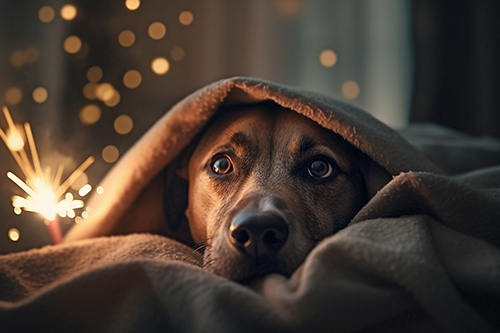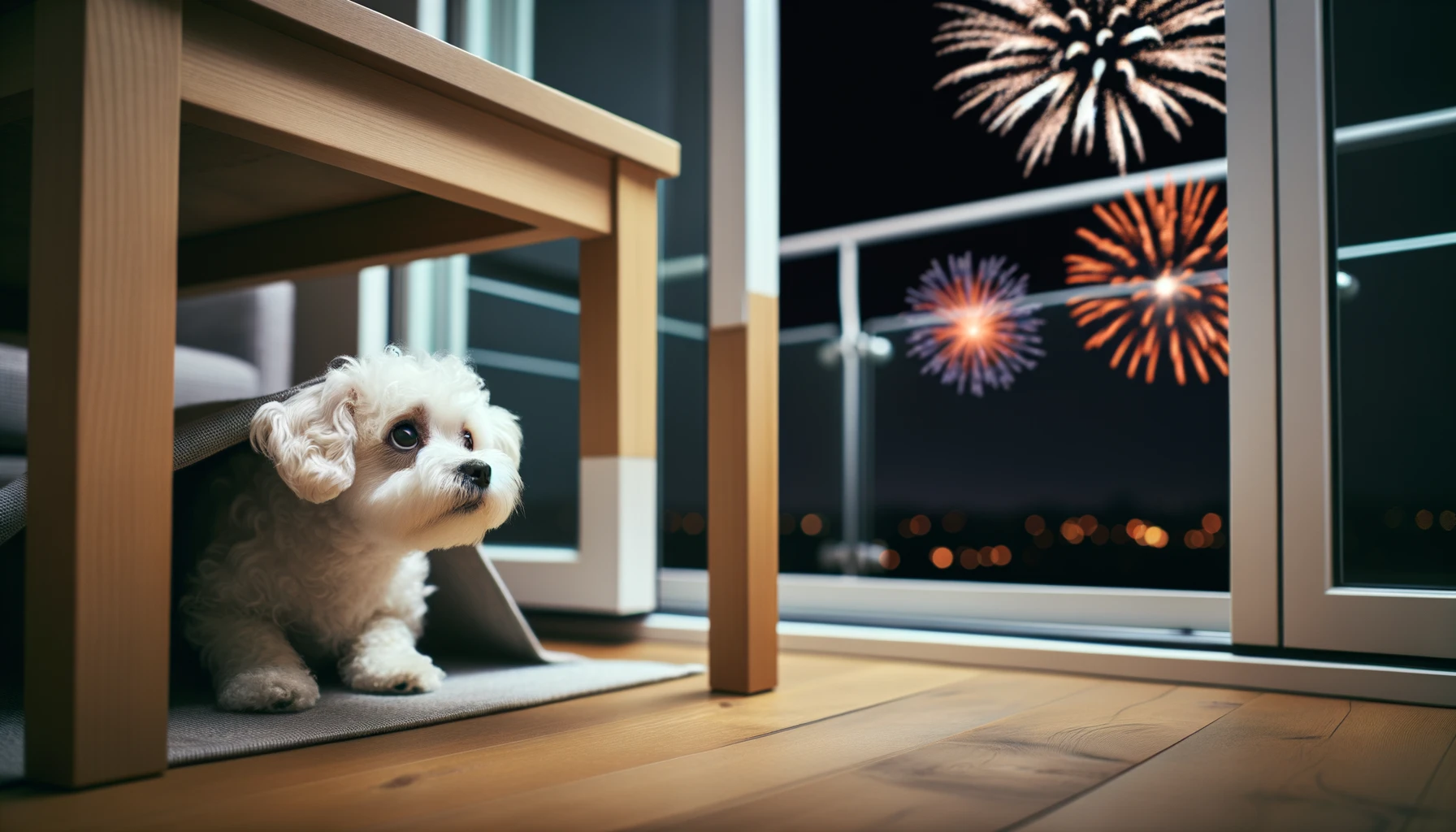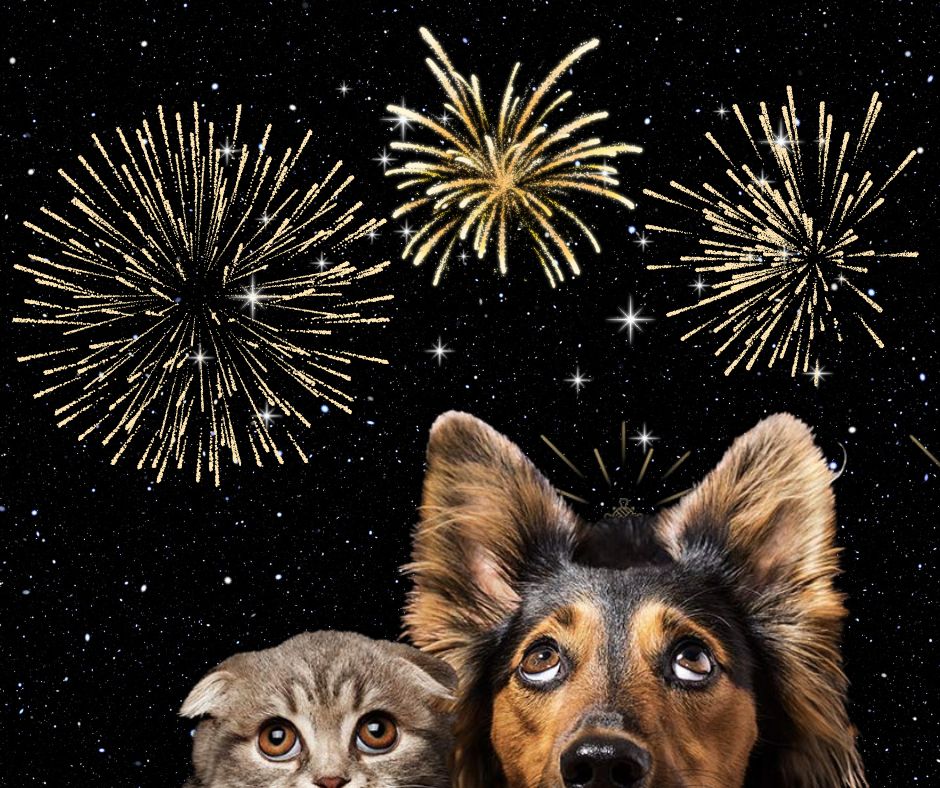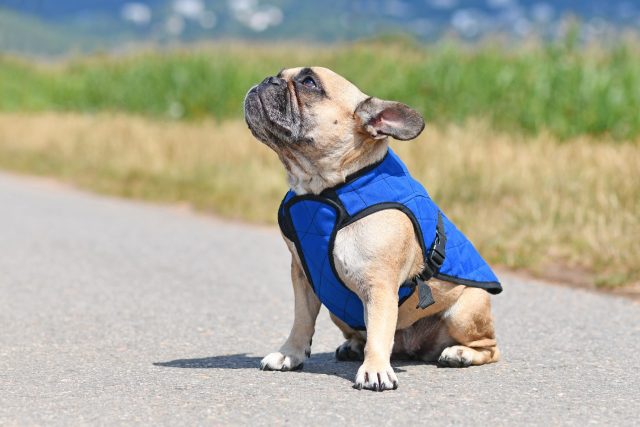Why Do Dogs Fear Fireworks? A Complete Guide to Helping Your Pet Stay Calm
Fireworks light up the night sky with vibrant colors and sounds, bringing joy to celebrations like the Fourth of July or New Year’s Eve. But for many dogs, these dazzling displays are a source of terror. If you’ve ever seen your furry friend tremble, hide under furniture, or bark frantically during a fireworks show, you’re not alone. According to the RSPCA, over 60% of dogs show signs of distress during fireworks, making it a common issue for pet owners.
In this in-depth guide, we’ll explore why dogs fear fireworks, the science behind their anxiety, and the health and safety risks involved. We’ll share real-life stories, common mistakes to avoid, and practical, vet-approved tips to help your dog stay calm during noisy events. Whether you’re a new pet parent or a seasoned dog owner, this article will give you the tools to make fireworks season less stressful for your canine companion.

Table of Contents
- Why Do Dogs Fear Fireworks?
- The Science Behind Fireworks Anxiety in Dogs
- Health and Safety Risks During Fireworks
- Common Mistakes Pet Owners Make
- Real-Life Stories: Dogs and Fireworks
- Actionable Tips to Help Your Dog Stay Calm
- Recommended Products for Fireworks Anxiety
- Frequently Asked Questions About Fireworks Anxiety
- Final Thoughts
Why Do Dogs Fear Fireworks?
Fireworks are a sensory nightmare for many dogs. The combination of loud noises, bright flashes, and unpredictable patterns can trigger intense fear. Let’s break down the key reasons why fireworks are so distressing for our canine friends.
Loud and Erratic Noises
Dogs have hearing that’s four times more sensitive than humans’, capable of detecting sounds between 67 Hz and 45,000 Hz, compared to our 20 Hz to 20,000 Hz range. Fireworks produce noises reaching 150 decibels or more—louder than a jet engine—and include booms, crackles, and whistles that are erratic and unpredictable. This sensory overload can feel like an assault, triggering a dog’s fight-or-flight response.
Flashing Lights and Vibrations
Beyond the noise, the bright, flashing lights of fireworks can disorient dogs. Their keen vision picks up rapid changes in light, which can be confusing or alarming. The ground-shaking vibrations from large fireworks displays add another layer of discomfort, making the experience overwhelming.
Lack of Context
Humans understand that fireworks are temporary and celebratory, but dogs lack this context. To them, the sudden explosions mimic threats like thunderstorms or predators, activating their survival instincts. Without knowing when the noise will stop, their fear intensifies.
Past Experiences and Trauma
Some dogs develop a fear of fireworks due to negative past experiences. A puppy startled by a loud display or a rescue dog with a history of trauma may associate fireworks with danger, reinforcing their anxiety over time.

The Science Behind Fireworks Anxiety in Dogs
Fireworks anxiety isn’t just a behavioral quirk—it’s rooted in a dog’s biology and psychology. Understanding the science can help you empathize with your pet and choose effective strategies to ease their fear.
Canine Hearing Sensitivity
A dog’s hearing is exceptionally acute, picking up frequencies far beyond human capability. Fireworks, with their high-pitched whistles and deep booms, fall within this sensitive range, making them not only loud but also physically uncomfortable. The erratic nature of these sounds prevents dogs from habituating, keeping them on edge.
Fight-or-Flight Response
When a dog hears a firework, their amygdala—the brain’s fear center—triggers the release of stress hormones like cortisol and adrenaline. This activates the fight-or-flight response, leading to behaviors like trembling, hiding, or trying to escape. Since fighting a firework isn’t possible, most dogs opt for flight, seeking safety wherever they can.
Conditioned Fear
Past experiences can condition dogs to fear fireworks. For example, a single startling encounter during puppyhood can create a lasting association between fireworks and danger. Over time, this fear can intensify, with even minor cues like a distant pop triggering anxiety.
Breed and Personality Differences
Not all dogs react the same way. Breeds with high prey drives, like hounds or terriers, may be more reactive to sudden noises. Anxious breeds, such as Border Collies or German Shepherds, are also more prone to fireworks phobia. However, any dog, regardless of breed, can develop this fear, especially if they have an anxious personality.

Health and Safety Risks During Fireworks
Fireworks don’t just cause temporary distress—they can pose serious risks to your dog’s health and safety. Being aware of these dangers can help you take proactive steps to protect your pet.
Stress-Induced Health Issues
Prolonged stress from fireworks can elevate cortisol levels, weakening a dog’s immune system and leading to issues like digestive upset, loss of appetite, or even heart problems in older dogs. Chronic anxiety can also exacerbate existing health conditions, making early intervention crucial.
Risk of Escape
Panicked dogs often try to flee during fireworks, leading to a spike in lost pets around events like July 4th, as reported by the ASPCA. Escaped dogs risk getting hit by cars, becoming lost, or encountering other dangers, highlighting the importance of securing your home.
Toxic Fireworks Debris
Fireworks leave behind debris containing chemicals like potassium nitrate and sulfur, which can be toxic if ingested. Curious dogs may chew on remnants, leading to gastrointestinal upset or poisoning. Sharp debris can also cause injuries to paws or mouths.
Long-Term Behavioral Changes
Repeated exposure to fireworks without intervention can worsen a dog’s fear, potentially leading to generalized noise phobias. This can make them anxious about other loud sounds, like thunderstorms or construction, impacting their quality of life.

Common Mistakes Pet Owners Make
It’s natural to want to comfort your dog during fireworks, but some well-meaning actions can worsen their anxiety. Here are common mistakes and how to avoid them.
Reinforcing Fearful Behavior
Petting or soothing your dog excessively when they’re trembling can reinforce their fear, as they may interpret your attention as validation of danger. Instead, stay calm and act as if the fireworks are normal to help your dog relax.
Leaving Dogs Outside
Leaving your dog in the yard during fireworks is risky, as even a secure fence may not stop a panicked dog from escaping. Always bring your dog indoors to a safe, quiet space.
Ignoring Early Signs of Stress
Subtle signs like panting, pacing, or lip-licking can indicate early anxiety. Addressing these cues promptly can prevent escalation into full-blown panic.
Not Preparing in Advance
Waiting until the fireworks start to take action leaves you and your dog unprepared. Planning ahead—creating a safe space or consulting a vet—can make a significant difference.
Real-Life Stories: Dogs and Fireworks
These real-life stories illustrate how fireworks affect dogs and how owners have successfully helped their pets cope.
Case Study 1: Bella the Beagle
Bella, a 5-year-old Beagle, would shake uncontrollably and hide under her owner Sarah’s bed during fireworks. Sarah tried comforting her with treats, but it didn’t help. After consulting a dog trainer, Sarah created a “safe haven” in her basement with blankets, toys, and a white noise machine. She also used YouTube recordings to desensitize Bella to firework sounds months in advance. By the next Fourth of July, Bella was much calmer, happily chewing a toy instead of hiding.
Case Study 2: Max the Rescue
Max, a mixed-breed rescue, bolted through an open gate during a neighbor’s fireworks display. His owner, Jake, found him cowering in a nearby park after hours of searching. Determined to help, Jake invested in a Thundershirt and worked with a veterinary behaviorist to create a calming routine. Max now stays relaxed in a quiet room with classical music during fireworks, showing significant improvement.

Actionable Tips to Help Your Dog Stay Calm
Helping your dog cope with fireworks requires preparation and patience. Here are vet-approved strategies to ease their anxiety during noisy celebrations.
Create a Safe Space
Set up a quiet, comfortable area where your dog can retreat, like a crate covered with a blanket or a room away from windows. Include familiar items like their bed, toys, and an article of your clothing for comfort.
Use White Noise or Calming Music
Mask firework sounds with white noise machines, fans, or calming music. Playlists like “Through a Dog’s Ear” or classical music can soothe anxious dogs. Start the sound before the fireworks begin to create a calming environment.
Desensitization Training
Start desensitizing your dog to firework sounds months in advance using recordings. Play them at a low volume, rewarding calm behavior with treats, and gradually increase the volume over time to build tolerance.
Consider Calming Aids
Products like Thundershirts, pheromone diffusers (e.g., Adaptil), or calming chews can reduce anxiety. Always consult your vet before using supplements or medications to ensure they’re safe for your dog.
Exercise Before the Event
A tired dog is a calmer dog. Take your dog for a long walk or play session earlier in the day to burn off energy. Avoid overexertion right before fireworks, as it can heighten stress.
Stay Calm and Present
Your dog looks to you for cues. Stay calm, speak in a soothing tone, and avoid reacting to the fireworks. Your relaxed demeanor can reassure your pet that there’s nothing to fear.
Secure Your Home
Close windows, doors, and curtains to muffle sounds and block flashing lights. Ensure your dog’s collar has up-to-date ID tags, and consider microchipping for extra security in case they escape.
Recommended Products for Fireworks Anxiety
These vet-approved products can help ease your dog’s fireworks anxiety. Always check with your veterinarian before introducing new products.
- Thundershirt Classic Dog Anxiety Jacket: Applies gentle pressure to calm anxious dogs. Available at Chewy.
- Adaptil Calming Pheromone Diffuser: Releases calming pheromones to reduce stress. Available at Petco.
- Zesty Paws Calming Bites: Natural chews with chamomile and L-theanine. Available at Amazon.
- Through a Dog’s Ear Music: Calming classical music designed for dogs. Available on Spotify or Amazon.
Frequently Asked Questions About Fireworks Anxiety
Why are dogs so scared of fireworks?
Dogs fear fireworks due to their sensitive hearing, unpredictable noises, and lack of understanding, which trigger their fight-or-flight response.
Can fireworks hurt my dog’s ears?
While fireworks are unlikely to cause permanent hearing damage, the loud noises can be painful and stressful due to dogs’ sensitive hearing.
Should I sedate my dog during fireworks?
Sedation should only be used under veterinary supervision as a last resort. Non-invasive options like calming aids or training are safer.
How can I tell if my dog is stressed?
Signs include trembling, hiding, panting, pacing, whining, or trying to escape. Early cues like lip-licking or yawning indicate stress.
Can I train my dog to not fear fireworks?
Yes, desensitization training with firework recordings can reduce fear over time. Start with low volumes and reward calm behavior.
Final Thoughts
Fireworks may be a source of joy for us, but for many dogs, they’re a terrifying ordeal. By understanding why dogs fear fireworks—due to their sensitive hearing, lack of context, and instinctual responses—you can take steps to ease their anxiety. Creating a safe space, using calming aids, and starting desensitization training early can make a big difference. Avoid common mistakes like reinforcing fear or leaving your dog outside, and consult a vet for severe cases.
With patience and the right strategies, you can help your dog feel secure during fireworks season. Your furry friend deserves to feel safe and loved, no matter how loud the sky gets. Have tips or stories about helping your dog during fireworks? Share them with the Cute Pets Lovers community in the comments below!
